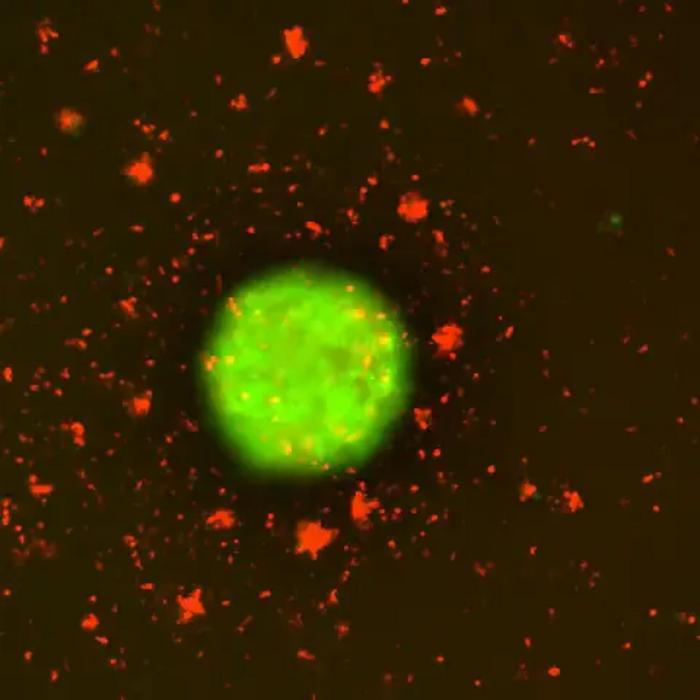Imagine a future where battles against stubborn solid tumors are fought not with traditional therapies that often come with devastating side effects, but with engineered immune cells designed for precision targeting. Researchers at the University of Southern California (USC) have unveiled a pioneering advancement in cancer treatment: the EchoBack CAR T-cell. These cells are part of the ever-evolving field of cancer immunotherapy and represent a significant departure from conventional methods, offering hope for patients whose tumors have previously been considered untreatable.
In the world of cancer treatment, CAR T-cell therapy has emerged as a beacon of innovation. Traditionally, this therapy involves extracting a patient’s T-cells, genetically modifying them, and reinfusing them to target cancer cells. However, the new EchoBack CAR T-cells are designed to operate with an unprecedented level of sustenance and efficiency. These engineered cells are activated by focused ultrasound, an adaptation that allows them to engage in sustained attacks on tumors for up to five days. This extended operational time is a significant improvement over earlier iterations of CAR T-cells, which typically function effectively for only 24 hours.
The promise of EchoBack CAR T-cells lies in their ability to navigate the complexities of solid tumors, which are notoriously challenging to treat with standard therapies. Traditional CAR T-cell therapies have shown remarkable success in blood cancers but have stumbled when it comes to solid tumors. This is due, in part, to the microenvironments that solid tumors create, which can suppress immune responses. However, the innovation encapsulated in the EchoBack technology provides a vital answer, allowing these T-cells not only to survive longer but also to operate more intelligently within the tumor landscape.
One of the remarkable features of the EchoBack CAR T-cells is their ability to be controlled remotely using focused ultrasound. This technique serves as an “on switch,” enabling physicians to selectively trigger the CAR T-cells in the presence of tumors. The targeted activation through ultrasound minimizes the potential for collateral damage to healthy tissues. Once activated, these T-cells employ a sophisticated mechanism that enables them to "listen" for signals emitted by cancer cells, enhancing their capacity to seek and destroy malignant cells.
The EchoBack technology relies on a unique feedback mechanism whereby T-cells are stimulated to produce additional molecules that enhance their killing abilities upon sensing the signals from dying tumors. This results in a powerful interaction between the CAR T-cells and the tumor microenvironment, leading to greater efficacy and a reduced risk of harming nearby healthy cells. Essentially, the EchoBack CAR T-cells exhibit a "smart" behavior that sets them apart from previous generations of CAR T-cells, as they are not only reacting to pre-programmed cues but are instead incorporating dynamic feedback from their surroundings.
In experimental mouse models, the implications of this research are profound. The research team demonstrated that the ultrasound-controllable EchoBack CAR T-cells outperformed conventional CAR T-cells in both attack duration and effectiveness. The difference in performance was significant, with the newer cells maintaining functionality and demonstrating less exhaustion when continuously exposed to tumor cells, contrary to their predecessors, which quickly became dysfunctional in similar scenarios.
This breakthrough in cancer immunotherapy brings with it a patient-friendly approach to treatment. Physical visits to healthcare facilities for T-cell infusions could be drastically reduced with the implementation of EchoBack CAR T-cells. Patients previously reliant on daily or multiple visits for treatments may instead experience the more convenient alternative of treatment sessions spaced weeks apart, drastically enhancing their quality of life during the battle against cancer.
Peer-reviewed research published in the journal Cell details these findings and underscores the collaboration between researchers at USC and colleagues at Yale University and the University of North Carolina at Chapel Hill. These partnerships reflect the integrative efforts to advance our understanding of immunology and cancer treatment. The A. Mann Department of Biomedical Engineering at USC, led by Peter Yingxiao Wang, stands at the forefront of this exciting development, continually pushing the boundaries of what is possible in biomedical engineering.
Lead author Longwei Liu, an assistant professor of biomedical engineering at USC Viterbi School of Engineering, highlighted the revolutionary nature of their findings. “These CAR T-cells have never been developed previously,” Liu remarked. Not only do they provide robust and prolonged immune responses, but they are engineered in such a way that minimizes harm to normal tissues, making them exceptionally safe.
The implications of the EchoBack CAR T-cells extend beyond just one type of cancer. Researchers at USC have high hopes that this technology could be adapted and modularized for application in other solid tumors, including breast cancer and retinoblastoma. This adaptability suggests a future where cancer therapies can be personalized even further, effectively treating a broader spectrum of cancer types.
With the prospect of transforming cancer treatment landscapes looming ever closer, the continued research and development of EchoBack CAR T-cells could represent a watershed moment in the fight against cancer. As scientists strive to refine this technology and expand its applications, they offer renewed hope to patients who have faced limited options in the battle with aggressive cancers.
If successfully translated from laboratory experiments to clinical practice, the EchoBack CAR T-cells may not only revolutionize how solid tumors are treated but could also redefine the standard of care in oncology. The marriage between engineering and biomedical science is advancing at an unprecedented pace, and one can only speculate where this innovative trajectory will lead us in the future of cancer immunotherapy.
Subject of Research: Animals
Article Title: Engineering sonogenetic EchoBack-CAR T cells
News Publication Date: 2-Apr-2025
Web References: Cell Journal
References: Research conducted in collaboration with Yale University and the University of North Carolina.
Image Credits: Longwei Liu at the USC Viterbi School of Engineering
Keywords: Cancer immunotherapy, T cell development, Ultrasound, Cancer cells, Cancer treatments, Cancer research




